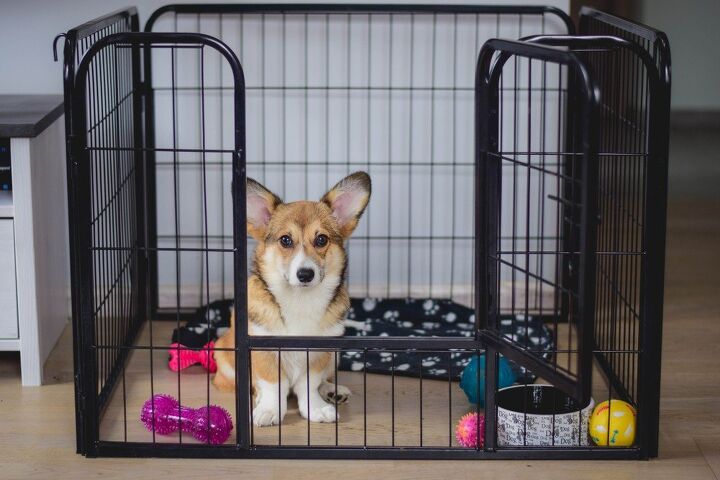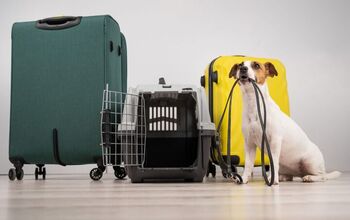What to Do When Your Puppy Cries At Night In His Crate

Now, I’ve always had older, rescue dogs in my life, but when my boyfriend brought home his adorable, 8-week old Lab pup last year, I had the opportunity to experience first-hand, what puppy night-life was like. It’s loud, it’s non-stop, and it’s a struggle because you don’t know whether you should be responding to those plaintive little yips, or ignoring them. I’m not one for tough love, but these clever little tykes can get your number real quick, and if there’s anything worse than a crying pup, it’s a manipulative one.
So, ready to learn how to make it through the night with a furry four-legged terror pushing your buttons? Here’s how:
1. Pups are like kids. Tire them out before bedtime and the physical exhaustion will take care of the rest. Now, never take it to the point your little guy can become injured, but a good walk or active playtime a couple hours before bedtime will help him relax.
2. Note that in point 1, I mentioned activity taking place a couple hours before bedtime. As tempting as it is to play with your fun-loving fur-kid, you need to allow him some calm-down time before you pop him into his crate. About an hour before its time for him to hit the hay, wrap up activities and turn interactions into gentle cuddling.
3. Wind down time should include a visit outside to make sure his bathroom needs have been met. With my one Schnoodle, a walk is required to produce results. A short walk down the street versus a backyard outing, is ideal because it helps him wind down and helps you monitor his output. But keep it short, make it about his relieving himself, and avoid being drawn into a before-bedtime play session.
4. Restrict his food and water intake around an hour before you put him to bed. Unless you’re prepared for the middle of the night yipping to alert you to his need for a bathroom break, once he’s hit the 4- to 6-month age range, he should be fine until morning.
5. Turn his crate into a cozy den. Young puppies miss their mom, their litter-mates and the comfort they can bring. Include a soft, cozy blanket he can curl up in, or even one of the soft plush toys available on amazon that can actually replicate his mom’s heartbeat.
6. Once crated, provide him with a comforting distraction. For most dogs, that’s chewing, and finding a toy that he can gnaw on until he falls asleep is a great option. I personally prefer a non-food item, as it won’t provoke a late-night potty break.
7. Bring his crate into, or close to, your bedroom. Dogs are pack animals, and because you’re bringing him into your family – his new human pack – he will gain comfort from having a living, breathing human nearby. If you have other pets, consider placing his crate in close proximity to where they sleep at night. Same effect.
8. For those who routinely leave the radio or TV on for their pet when they have to leave the house, you’ll understand why soothing music, played low can help calm a distressed puppy. Typically, low, single note tones (think cello, piano) are enough to distract him from the day’s stress and help lull him to sleep.

Sharing space with three seriously judgy Schnoodles and a feline who prefers to be left alone. #LivingMyBestLife
More by Mary Simpson























